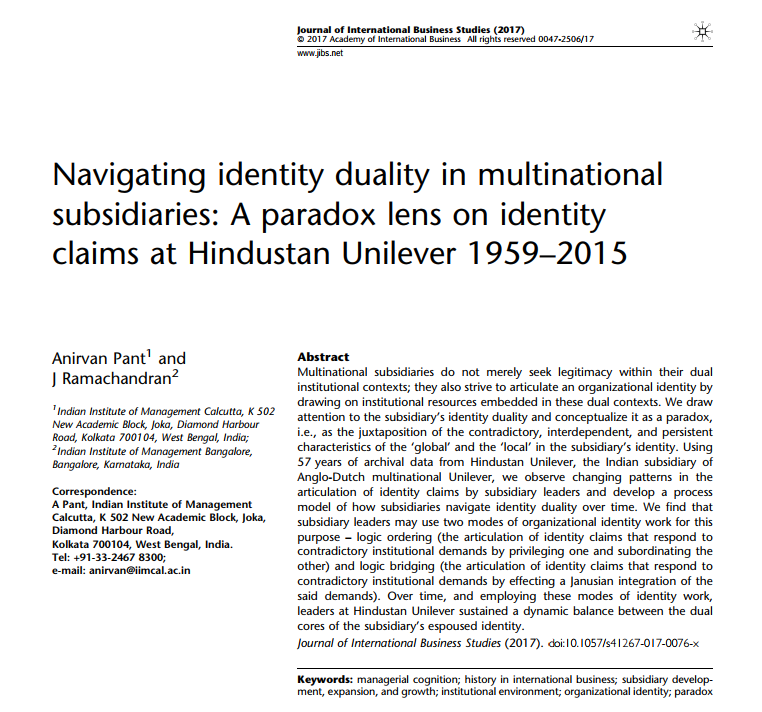Faculty members at IIM Bangalore generate knowledge through cutting-edge research in all functional areas of management that would benefit public and private sector companies, and government and society in general. The knowledge generated by IIMB faculty appears in leading academic journals with high citation index and impact factor. Many textbooks and working papers are written on a regular basis. Research carried out by IIMB is used to augment new courses and executive education programmes.
Journal of International Business Studies
Journal Title: Navigating identity duality in multinational subsidiaries: A paradox lens on identity claims at Hindustan Unilever 1959–2015.
Abstract
Multinational subsidiaries do not merely seek legitimacy within their dual institutional contexts; they also strive to articulate an organizational identity by drawing on institutional resources embedded in these dual contexts. We draw attention to the subsidiary’s identity duality and conceptualize it as a paradox, i.e., as the juxtaposition of the contradictory, interdependent, and persistent characteristics of the ‘global’ and the ‘local’ in the subsidiary’s identity. Using 57 years of archival data from Hindustan Unilever, the Indian subsidiary of Anglo-Dutch multinational Unilever, we observe changing patterns in the articulation of identity claims by subsidiary leaders and develop a process model of how subsidiaries navigate identity duality over time. We find that subsidiary leaders may use two modes of organizational identity work for this purpose – logic ordering (the articulation of identity claims that respond to contradictory institutional demands by privileging one and subordinating the other) and logic bridging (the articulation of identity claims that respond to contradictory institutional demands by effecting a Janusian integration of the said demands). Over time, and employing these modes of identity work, leaders at Hindustan Unilever sustained a dynamic balance between the dual cores of the subsidiary’s espoused identity.


Written by
J Ramachandran, Indian Institute of Management Bangalore
Read More @ Journal of International Business Studies
